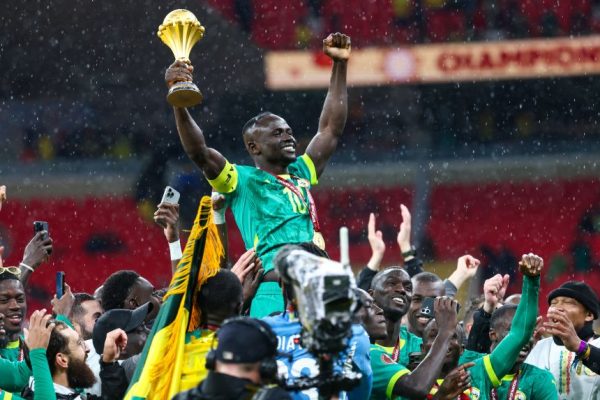Uganda is in a headlock with Nigeria in a Twitter war that has raged for most of the weekend. This is not the first time that the self-proclaimed ‘Giant of Africa’ is caught in an online battle for supremacy which the country ultimately wins by the sheer power of numbers, and some will argue a zeal that is very much in character for a people that are popular for dragging their responsibility-averse political class until the latter is forced to at least make a show of sitting up to act right.
The exchange is mostly poverty-shaming, with Nigerians making naira comparisons against Ugandan shillings which trade at 1 to 0.1 Nigerian Naira. Colourism tropes which compare the fair skinned beauty of Nigeria’s ruling class against Uganda’s comparatively darker elite. And architectural juxtapositioning that ignores the historical influences of how our tastes developed as formerly colonised African states. The singular most telling thing of all is how it appears that while cultural influences have flowed between the two countries for years, little else has. Neither Nigerians nor Ugandans know alot about one another. So what are the facts about these Twitter-warring African countries?
https://twitter.com/Iam__Teeboi/status/1256903049005670400?s=19
It's Uganda oh..they're being roasted by Nigerians to burnt offerings..the painful part is they look like that already 😭😭 #UGANIG https://t.co/4RLp9ejvjM
— George the auto parts guy🫡 (@Valon_Autos) May 3, 2020
https://twitter.com/MaziSamson/status/1256909089831092230?s=19
First Lady's Battle?
Like for Aisha
RT for Uganda First lady #UGANIG pic.twitter.com/SX3zMYDEO8— 🅢🅟🅔🅒🅣🅔🅡™♡👻 (@AbdulraufKhamiz) May 3, 2020
https://twitter.com/Sv1iM/status/1256897047883649026?s=19
https://twitter.com/collomentall/status/1256910377285300226?s=19
The facts about Uganda:
- Uganda is a landlocked East African country. It is bordered by South Sudan to the north, Kenya to the east, Tanzania to the south, Rwanda to the southwest and Democratic Republic of the Congo to the west. This means that it is at least 3 countries away from Nigeria as the bird flies and in a whole other region of the motherland; Africa. Making comparisons to other countries within our region of West Africa Moot.
- Uganda has had the same president since 1986. He assumed power a year after current President of Nigeria Muhammadu Buhari was overthrown as a military dictator. Museveni was involved in rebellions that toppled notorious Ugandan leaders Idi Amin (1971–79) and Milton Obote (1980–85) before capturing power in the 80s.
- Uganda embraces many ecosystems, from the tall volcanic mountains of the eastern and western frontiers to the densely forested swamps of the Albert Nile River and the rainforests of the country’s central plateau. The land is richly fertile, making for one of Africa’s most diverse ecosystems.
- Ugandan coffee has become both a mainstay of the agricultural economy and a favourite of connoisseurs around the world.
- Uganda’s Lake Victoria (26,828 square miles [69,484 square km]), in the southeastern part of the country, is the world’s second largest inland freshwater lake by size after Lake Superior in North America, although Lake Baikal in Siberia is larger by volume and depth. Victoria is also one of the sources of the Nile River.
If that is not enough to make you grasp the similarities the distant African nations share, stick with this, and it will become apparent soon enough.
The facts about Nigeria:
- The country’s film industry, known as Nollywood, is one of the largest film producers in the world, second only to India’s Bollywood, and third to Hollywood, the world’s biggest film industry.
This Perhaps explains the country’s dominance in Africa’s continental entertainment.
- Lagos, the former capital of Nigeria before being moved to Abuja, is the country’s largest and most populous city and has been dubbed “Africa’s Big Apple,” in reference to New York City.
- Largely due to its export market, Nigeria is the largest economy in Africa. While the agricultural industry accounts for approximately 70 percent of the country’s employment, petroleum products are the primary export—accounting for more than 90 percent of Nigeria’s exports.
- Nigeria gained independence in 1960, a mere 2 years ahead of Uganda. Both countries are members of the British Commonwealth; a voluntary association of 54 sovereign states. Nearly all of them are former British colonies or dependencies of those colonies.
- Nigeria is the seventh-most populous country in the world, home to more than 200 million people.
The latter is perhaps why, among other reasons, Nigerians find pride in identifying the country as the Giant of Africa.
Ugandans make for a bold opponent, yet, far from a match for Nigeria’s sheer herd strength.
https://twitter.com/saleemswaleh/status/1256950593375154178?s=19
Buhari has 24 hours to respond.#UGANIG pic.twitter.com/Mm5bPxr0x3
— . (@kasharifinest) May 3, 2020
Uganda news anchor Nigeria news anchor#UGANIG pic.twitter.com/NPUUir15PV
— Rhythm_Africa Safari's (@rhythmafric) May 3, 2020













